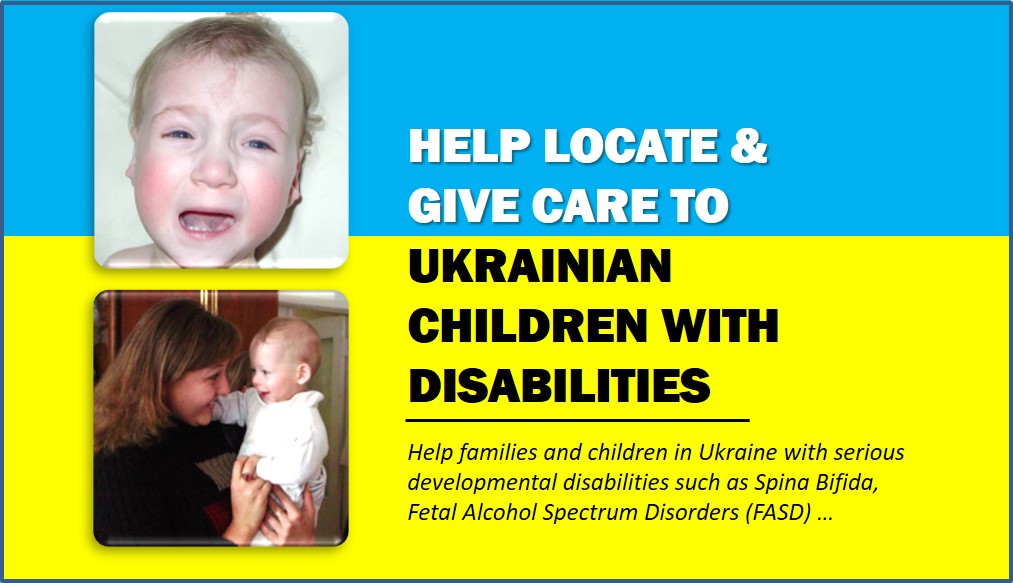|
|
|
Demosthenes overcame stuttering and a spastic shoulder to become a famous orator. |
... Stuttering is a speech disorder in which the normal flow of speech is disrupted by frequent repetitions or prolongations of speech sounds, syllables or words or by an individual's inability to start a word. The speech disruptions may be accompanied by rapid eye blinks, tremors of the lips and/or jaw or other struggle behaviors of the face or upper body that a person who stutters may use in an attempt to speak. Certain situations, such as speaking before a group of people or talking on the telephone, tend to make stuttering more severe, whereas other situations, such as singing or speaking alone, often improve fluency. Stuttering may also be referred to as stammering, especially in England ...
National Institute on Deafness and Other Communication Disorders, continued below. |
|
|
|
|
|
Emperor Claudius stuttered and may have had CP. |
Early interventions (before schoolage) are most important |
|
|
|
Emperor Claudius suffered from dysphonia, dysarthria, dyskenisia and dysphoria, perhaps due to CP (altered voice, speech, neck contorsions and dysphoria or "quick temper"). |
Stuttering - How is Speech Normally Produced?
National Institute on Deafness and Other Communication Disorders (NIDCD), May 24, 2007
... normally produced through a series of precisely coordinated muscle movements involving respiration (the breathing mechanism), phonation (the voicing mechanism) and articulation (throat, palate, tongue, lips and teeth) ... initiated, coordinated and controlled by the brain and monitored through the senses of hearing and touch ... What causes stuttering? ... variety of causes... many forms of stuttering are genetically determined... The most common form of stuttering is thought to be developmental... Where can I get more information? ... NIDCD maintains a directory of organizations ...
Stuttering: A Brief Review
Michael Lawrence, M.D. et al., American Family Physician, May 1, 1998
Stuttering is a disorder affecting the fluency of speech. The World Health Organization defines stuttering as "a disorder in the rhythm of speech in which the individual knows precisely what he or she wishes to say, but at the same time may have difficulty saying it because of an involuntary repetition, prolongation, or cessation of sound." 1 Stuttering may be divided into developmental dysfluency (which many children experience) and pathologic dysfluency ... etiology of stuttering is controversial ... 80 percent of children who stutter recover fluency by the age of 16 years ... severe stuttering requires speech therapy ...
Stuttering
Wikipedia, December 28, 2006
 "Wikipedia is an open source that can be altered (and adulterated) without notice. Given that the version of 30-June-2007 is excellent, this link is to an archived copy." "Wikipedia is an open source that can be altered (and adulterated) without notice. Given that the version of 30-June-2007 is excellent, this link is to an archived copy."
Much of what constitutes "stuttering" cannot be observed by the listener; this includes such things as sound and word fears, situational fears, anxiety, tension, self-pity, stress, shame, and a feeling of "loss of control" during speech. The emotional state of the individual who stutters in response to the stuttering often constitutes the most difficult aspect of the disorder ... Stuttering is generally not a problem with the physical production of speech sounds ( see Voice disorders ) or putting thoughts into words ( see Dyslexia , Cluttering ) ... stuttering does not affect and has no bearing on intelligence ... speaking alone (or reading from a script, as with actor James Earl Jones ), fluency improves ...
What Causes Stuttering?
Christian Büchel et al., NeuroImage Nord, the Department of Neurology at the University of Hamburg, Hamburg, Germany, February 17, 2004
 "Of particular interest to medical scientists and educators." "Of particular interest to medical scientists and educators."
... developmental stuttering differs from acquired stuttering in that it is particularly prominent at the beginning of a word or a phrase, in long or meaningful words, or syntactically complex utterances ... and the associated anxiety and secondary symptoms are more pronounced ... In children with perinatal or other brain damage, stuttering is more frequent ... Prevalence is similar in all social classes ... Winston Churchill had to rehearse all his public speeches to perfection and even practiced answers to possible questions and criticisms to avoid stuttering. Charles Darwin also stuttered ... early studies on EEG lateralization already strongly suggested abnormal hemispheric dominance ... in stutterers ... linked stuttering with an imbalance of hemispherical asymmetry ... increased activation in the right hemisphere in a language task in developmental stutterers ... clear-cut difference between stutterers and controls ... controls activated left frontal brain areas involved in language planning before central areas involved in speech execution, this pattern was absent, even reversed, in stutterers ... neuronal correlate of a hypothesized speech timing disorder in stutterers ... two important facts: (i) in stutterers, the right hemisphere seems to be hyperactive, and (ii) a timing problem seems to exist between the left frontal and the left central cortex ...
The Sex Ratio in Persistent Stuttering
Dennis Drayna et al., American Journal Human Genetics 1999 November; 65(5): 1473–1475, National Institute on Deafness and Other Communication Disorders
 "The family history is a critical element." "The family history is a critical element."
... speech disorder characterized by involuntary syllable repetitions, syllable prolongations, or interruptions, known as blocks, in the smooth flow of speech (World Health Organization) ... Stuttering often resolves spontaneously before adolescence, leading to a population prevalence of 1%–2% among adults. Stuttering beyond childhood is characterized by a significant bias toward males ... by a ratio of 3:1 ...
Stuttering, Familial Persistent 1; Stut1
Victor A. McKusick, OMIM, Johns Hopkins University, June 19, 2007
 "The family history is a critical element." "The family history is a critical element."
Stuttering typically arises in young children, where it affects at least 15% ... usually resolves spontaneously before adolescence ... Stuttering is said to be unusually frequent in Japanese, low in Polynesians, and almost completely absent in American Indians ...
Concordance for Stutteringin Monozygotic and Dizygotic Twin Pairs
Pauline M. Howie, Journal of Speech and Hearing Research Vol.24 317-321 September 1981
 "Identical twins point toward genetic and environmental factors." "Identical twins point toward genetic and environmental factors."
... 30 pairs of same-sex twins ... in identical twins (63%) ... fraternal same-sex twins (19%) ... strongly suggest the operation of genetic factors in stuttering ... identical twins who were discordant for stuttering ... importance of the interaction of genetic and environmental factors ...
The Stuttering Foundation
The Stuttering Foundation, 2007
 [Support Groups] "Rich resource for families." [Support Groups] "Rich resource for families."
... provides free online resources, services and support to those who stutter and their families ... nonprofit charitable organization ... working towards the prevention ... (800)992-9392
National Stuttering Association
National Stuttering Association, 2007
 [Support Groups] [Support Groups]
... self-help support organization in the United States for people who stutter ...
European League of Stuttering Associations
European League of Stuttering Associations (ELSA), May 28, 2007
 [Support Groups] "Valuable multilingual international resources." [Support Groups] "Valuable multilingual international resources."
... member organisations of ELSA have their own websites ... International Stuttering Association ... International Fluency Association ... Stuttering Homepage ... Stuttering Foundation of America ... National Stuttering Association ... Canadian Stuttering Association ... A UK charity ... European Union.
El Tartamudeo
National Institute on Deafness and Other Communication Disorders, June 5, 2006
 [Spanish] "Valuable resources." [Spanish] "Valuable resources."
El tartamudeo es un trastorno del habla en el cual el flujo normal se interrumpe mediante repeticiones frecuentes o la prolongación de sonidos, sílabas o palabras o por la incapacidad de un individuo para comenzar una palabra ... El tartamudeo también se conoce como balbuceo ... se diferencia de ... el lenguaje desordenando ... lenguaje irregular ... disfonía espasmódica ... ¿Qué provoca la tartamudez? ... una variedad de causas ... La forma más común ... niños que están en el proceso de desarrollar el habla y el lenguaje ... La tartamudez sucede cuando un niño está buscando la palabra correcta ... Otra forma común de tartamudez es neurogénica ... el cerebro no puede coordinar adecuadamente los diferentes componentes del mecanismo del lenguaje ... Otras formas ... se clasifican como psicogénicas ... como el pensamiento y el razonamiento ... el tartamudeo puede darse en las familias ... algunas formas de tartamudez sean, en realidad, hereditarias ... El desarrollo de la tartamudez es a menudo tratado educando a los padres ... ¿Dónde puedo obtener más información? ... American Speech-Language-Hearing Association (ASHA) (Asociación Americana del Habla, Lenguaje y Audición) ...
La Fundacion Americana de la Tartamudez
La Fundación Americana de la Tartamudez , January 12, 2007
 [Spanish] [Spanish]
... ofrece información, servicios y apoyo a las personas que tartamudean ... Publica un catálogo de recursos ...
La Tartamudez
University of Utah Health Sciences Center, May 2001
 [Spanish] [Spanish]
La tartamudez, algunas veces llamada balbuceo o habla no fluida , es un desorden del habla ... Repeticiones frecuentes (prolongaciones) de los sonidos, sílabas, o palabras ... Parpadeo rápido de los ojos ... Temblor de los labios o mandíbula. ... Otras conductas que manifiestan dificultad ... Existen varios tipos de tartamudez ... tartamudez del desarrollo ... La tartamudez psicógena ... Tratamiento de la tartamudez ... determinado por su médico, o médicos basándose en lo siguiente ... La edad ... Que tan avanzado está el desorden ... preferencia del paciente ... Los padres de niños que tartamudean ... que brinde amplias oportunidades para que el niño hable ... Hablar lentamente ... Evitar criticar ...
________________________________________________________________________________________________
Last Updated: 2008/6/13
________________________________________________________________________________________________
|
















